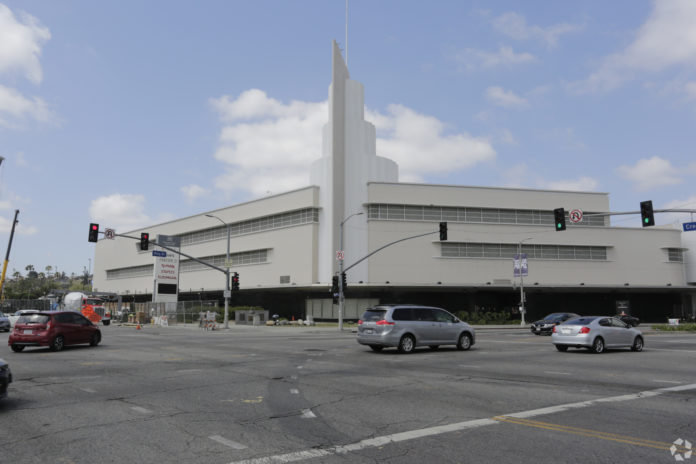In an unusual development, one of the biggest retail real estate sales of the year has fallen through amid community opposition.
Mid-Wilshire-based CIM Group, which announced in April that it had entered into an agreement to purchase the 869,000-square-foot Baldwin Hills Crenshaw Plaza, disclosed June 14 that it was stepping back from the deal.
“CIM has concluded that the community, the Mall, and CIM are best served by us stepping aside,” the company wrote in an Instagram post.
Industry executives who attributed the collapse of the deal to a range of unique factors, differ as to how CIM’s exit may affect the mall’s future sale price.
Terms of the original deal had not been disclosed, but industry insiders had pegged the price at more than $100 million.
Baldwin Hills Crenshaw Plaza occupies 40 acres at 3650 W. Martin Luther King Jr. Blvd.
The center’s Macy’s Inc. and IHOP Restaurants stores were not included in the sale, but other anchor tenants, including a Cinemark USA Inc. movie theater, were part of the transaction.
CIM’s proposed purchase of the site had met with opposition from some members of the community.
Revs. William Smart Jr. and K.W. Tulloss led multiple protests outside CIM’s offices, and more than 9,000 members of the community signed a petition opposing the sale.
The protesters’ concerns fell under two categories: CIM’s plans to redevelop the mall and the company’s alleged ties to President Donald Trump and his son-in-law Jared Kushner.
CIM has denied both claims.
“CIM Group would have enjoyed the opportunity to work with the community and make Baldwin Hills Crenshaw Plaza successful for Crenshaw and South L.A. It is unfortunate that a petition by opponents to our acquisition of the property relied on false statements rather than comparing and contrasting a prior development proposal and CIM’s current vision for the property,” the company said in a statement released June 15.
“Moreover, CIM Group does not have business with, nor is it ‘backed’ by Trump or Kushner, a falsehood that was prominent in the petition drive,” the company added.
CIM had considered adding creative office space to redevelop the center, following a trend of developers converting retail properties into creative offices.
Hudson Pacific Properties Inc. and Macerich Co. are redeveloping part of the Westside Pavilion into One Westside, a 584,000-square-foot office space preleased to Google. GPI Cos. is working on a $180 million redevelopment to convert the former Macy’s at the Westside Pavilion into office space.
“This is a tremendous Black victory and a testament to the power of our community,” Damien Goodmon, executive director of the Crenshaw Subway Coalition, said in a statement.
Goodmon was one of the leaders of the fight against the mall being sold to CIM Group.
“Once it became clear that we were going to apply a lot of pressure on the chief investors of CIM, the public pension funds, by exposing how their treacherous business relationship is harming the very public whose money is being used, I think CIM had to reassess the deal,” Jackie Ryan, the former president of the Leimert Park Village Merchants Association, said in a statement.
Some industry executives said CIM Group’s decision to pull out of the sale is unusual.
“This is a special circumstance because of the neighborhood and the community,” said Chris Maling, a principal at Avison Young. “This is a heightened focus because of the Black Lives Matter resurgence and the focal point of that tension and change. This location is an area that has a very large African American demographic.”
“The community is very concerned that Crenshaw Plaza will be transformed and there will be more of a push for gentrification of that area,” he added.
Mike Matter, a director of the Stan Johnson Co., said a company pulling out of a sale because of community opposition is not entirely uncommon, though, and it could happen more going forward.
“Community groups that challenge developers have always been there,” he said. But there might be more protests “moving forward with all the civil discourse going on … but there’s always been community groups battling with investors and developers.”
Matter said developers may decide to pull out of a project if the profit margin is not large enough to justify a costly fight and potential project delays.
CIM’s pullout could affect the eventual sale price of the property. “It puts a dent in things, especially if you have a reputable developer come to the table and walk away because of a barrier to do their project,” Matter said. “But there’s plenty of developers and plenty of capital that want to do projects. I don’t think it will totally kill an opportunity for the current seller.”
Matter added that Baldwin Hills Crenshaw Plaza was a unique opportunity for a developer who can show community groups and local government why their plans are beneficial.
Commercial real estate reporter Hannah Madans can be reached at [email protected]. Follow her on Twitter @HannahMadans.

